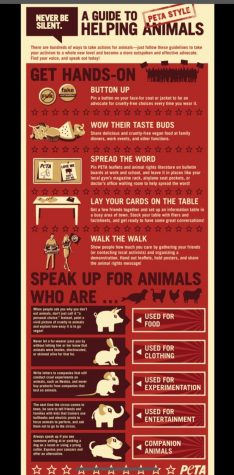The New PACT Act
With An Animal Advocates’ Exclusive Input:
(Left Picture: Trixie, a three year old malnourished and underweight Mini-Dachshund was rescued by the Harris family in 2016.) (Right Picture: Trixie, 3 years later in 2019, at an average weight and perfect health.) “Rescuing this dog changed our lives. We got so lucky. She is the sweetest and most loving dog. I can speak for my whole family when I say, we can’t picture life without her,” said Karen Harris
![]() Loading ...
Loading ...
Every year over 250,000 animals are victims of abuse. The estimated number of animal cruelty cases is between 900 and 2,000 every year, yet many animal abuse cases are never even reported.
A new bill has been passed that may make it easier for animal abusers to be caught and punished. Animal Protection Advocate, journalist, and writer, Kathy Downey, gave TritonVoice the inside scoop on her work as an animal advocate and the new bill.
Downey believes that the new PACT Act will start making headway regarding the punishment of animal abusers.
“I think the PACT Act will reduce, I would hope, “eliminate”, the number of animals who are tortured in creating these sadistic videos. The PACT Act received full bipartisan support—which is huge,” said Downey. “And Speaker of the House has ceremoniously signed this legislation. The PACT act now awaits a signature from President Trump. Hopefully, the president will sign the PACT act into law.”
Many families around the Triton area buy, adopt, or rescue animals for household pets. Many children have grown up having animals for pets and would never imagine laying a hurtful hand on their pets. However, it is often not those families who are abusing animals, rather than individuals themselves, or harmful groups.
The House of Representatives has passed a bill that makes animal cruelty a federal felony. This act is called the PACT Act, which stands for Preventing Animal Cruelty and Torture. The PACT Act was passed by the House of Representatives on October 22, 2019.
Animal advocates often attend hearings for bills regarding the protection of animals. Triton Voice has an insight into what it is like being an animal advocate that is extremely involved.
For the last four years, Downey has been researching and writing about endangered primate species profiles for New England Primate Conservancy. For a time, she served as the volunteer district leader for Essex County – on behalf of The Humane Society of the United States. In 2018, her state representative, Lenny Mirra, nominated her as an “Unsung Heroine” for her work in animal rights. She was one of 130 women across the state who was recognized for her volunteer and community work. She attended a ceremony at the Massachusetts statehouse, received accolades and certificates, including a certificate signed by Governor Charlie Baker.
Downey explained what she does to prepare for a hearing regarding a bill for animals.
“Bills are heard and considered by specific committees, these hearings are open to the public, and members of the public are given the opportunity to testify for or against the bill under review. So, I research the bill being heard and I take advantage of the 2 or 3 minutes allowed and do my best to sway the committee to either pass or oppose a specific bill- depending on which action most benefits animals, of course. I try to look up each committee member, too, so I know this person’s voting record on certain bills.”
Downey recently attended a hearing for a bill that if passed, would ban traveling circuses from using wild animals in their shows throughout Massachusetts. Many states have already enacted this ban. Downey explained what the hearing was like.
“The Tourism committee was the group who “heard” this bill. Most in the “audience” (that is, the hearing room) were animal advocates, speaking in favor of this bill. However, also in the audience was the owner of Commerford and Sons – traveling circus owners who, naturally, do not want this bill to pass. You may have heard about Beulah and Karen, two elephants owned by Commerford and who were “fixtures” (in the saddest
way possible) at the Topsfield Fair. Both elephants died this year after decades of servitude and inhumane care,” said Downey
Animals are well-loved in most communities, but there are some people who treat them cruelly and should be held accountable. There are many animal advocates in this world that are the voice these animals do not have.
“My favorite thing about animals is that they don’t care who you are, what you do for a living, how much money you make, what you drive for a car. They love you unconditionally and just want your love in return. How a person treats animals, in my opinion, speaks volumes about their character,” says Animal Advocate and volunteer at Sweet Paws Rescue, Noreen Waddell.
“My favorite thing about animals is the connection I feel with them. I admire their ability to “live in the moment,” to forgive, to take pleasure in a nap, a meal, a walk, to love without judgment, to be present,” said Downey.
However, it is not just “household” pets that are abused and treated cruelly. Downey lays out the different types of abuse animals suffer from.
“There’s perversion—salacious “entertainment” of the torture/crush videos that the PACT act addresses. There’s also neglect, tying a dog out on a chain for hours, as for example, Massachusetts had an anti-tethering ordinance that was passed in 2016, which limits the amount of time a dog can be chained, unsupervised. Certainly, beating one’s pet is a form of cruelty. Puppy mills are also intensely cruel operations. The animals who end up on our plates or on our backs suffer the most extreme cruelty and are ultimately, killed, of course – so we can enjoy our favorite entrée or wear a wool or fur coat,” said Downey. “Animals imprisoned in research labs undergo horrendous, painful, invasive experiments before they are ultimately killed. Dogs, cats, nonhuman primates, rats, mice, birds . . . all are victims of vivisection. Wild animals enslaved in zoos (a few zoos are considered more reputable because they are actively involved in conservation programs), and aquariums are also victims of abuse.”
The PACT Act was introduced by Ted Deutch and Vern Buchanan and will revise a previous animal cruelty law from 2010. The Animal Crush Video Prohibition Act was signed by Barack Obama and was made to ban “crush-videos”, which are videos of humans viciously torturing animals.
“The videos mostly depict women — with their faces unseen — stomping helpless animals such as rabbits to death with spiked-heel shoes or with their bare feet. The videos apparently satisfy a sexual fetish for those who produce and watch them, said animal rights activists who supported the new bill,” according to CNN Politics.
“Animal cruelty has no place in our society. We as the human race need to stop the abuse,” says Waddell.
This new law also changes how law officials can deal with animal abusers.
Currently, federal law only explicitly prohibits animal fighting. Abusers are only criminalized when they create and sell videos showing the actual animal abuse and cruelty.
The new PACT Act allows authorities to physically go after animal abusers. Due to it being a federal law, authorities will have federal jurisdiction and not be held back by state laws. Authorities now have the ability to prosecute offenders if the abuse takes place on federal property.
This new act allows animal abusers to be prosecuted for crushing, burning, drowning, suffocating, impaling animals, and sexually exploiting them.
Despite the breakthrough regarding this new act, many still believe there is more to be done to end the cycle of abuse.
“I feel that teaching children and future generations to be kind to animals will help, to report any animal abuse, and to intervene if you witness animal cruelty. Stricter punishments must come,” said Waddell. “I think this new law will help reduce the number of animal abuse cases, but it is only the beginning. I feel that more needs to be done. The laws have to continue to evolve and become more strict for the sake of the animals. All animals, not just companion animals.”
Downey however, has a different take on the matter. She thinks that the best thing for humans to do to help end abuse is going vegan.
“The single most effective action that humans could take to make a positive difference in the lives of animals would be to “go vegan.” And by vegan, I am referring to veganism as a compassionate philosophy that recognizes the sentience of other living beings, particularly the nonhuman animals who share our world,” said Downey.
Downey explains veganism in a way that shows it is much more than just eliminating meat out of your diet.
“Veganism is much more than adhering to a plant-based diet, though certainly a plant-based diet is an important component. Many people who call themselves “animal lovers” think nothing of the food on their plate. They “love” a good steak but think nothing of the cow who was born/raised simply to be slaughtered for their palate pleasure. Vegans think about the clothing they wear, cosmetics and household products they purchase to ensure that these items have been created and or derived without cruelty or taking the lives of animals. Part of the resistance to veganism is a lack of understanding to the concept/philosophy. People are resistant because they feel their comfortable lifestyle/diet is threatened. I am heartened with the many vegan food options hitting the mainstream, said Downey.” Beyond Burger, Impossible Burger, and many other plant-based alternatives—including all the non dairy milk now on supermarket shelves, and veganism is becoming less “kooky.” A film (currently on Netflix) called The Game Changers looks at athletes who are at the top level of their “game” –and they are all vegan!” explained Downey.
In the PACT Act, those that are convicted of animal cruelty and abuse are subjected to facing felony charges, fines, and up to seven years in prison.
Downey gave Triton Voice her opinion on the punishment for those convicted.

“Certainly, a prison term is a deterrent. But what kind of twisted society do we live in, where a deterrent to such perversion is necessary? Apparently, a very twisted society. The addition of felony charges and fines adds strength to the legislation. I think that perverts and or perpetrators violating the PACT act should be publicly shamed. With social media, shaming these perverts would be easy and far-reaching. And of course, these perverts should be banned from ever owning a pet.”
Waddell agrees with some aspects of the punishment for this felony.
“I agree with the federal felony charges and fines, but I feel that more prison time should be passed down, along with a ban to never possess another animal and be put on a national register just like a sex offender. The punishments must be stricter as to deter the animal cruelty otherwise it will continue,” said Waddell.
In addition, the bill has been endorsed by the National Sheriffs Association and the Fraternal Order of Police.
The measure must next pass the Senate, which has not yet scheduled a vote on it.
Triton senior, Maggie Bowen, relayed her opinion on if she believes this new act will stop the abuse of animals.
“I obviously think this act will make headway,” said Bowen. “But there is no saying that messed-up people will continue to abuse animals. However, now they may have a greater chance of getting caught, which is a very good thing.

Hey! My name is Holly Harris. I am a junior at Triton High School. I play soccer for Triton, as well as softball and enjoy both sports. I work at the Market...








